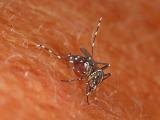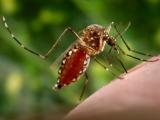Mar 30, 2012
Governors, officials turn out to support LFTB ('pink slime')
The governors of Iowa, Texas, and Kansas; two lieutenant governors; and the under secretary for food safety at the US Department of Agriculture held a press conference yesterday to defend Beef Products Inc. (BPI) and its product, lean finely textured beef (LFTB), pejoratively labeled "pink slime." They called LFTB—which is meat from beef trim that is centrifuged to remove fat and treated with ammonium hydroxide to kill pathogens—safe and nutritious, according to a Food Safety News (FSN) story today. "We need to stand together to clear up the misinformation that has been circulating in the media," said Iowa Governor Terry Branstad, who helped organize the event. "Dude, it's beef!" said Kansas Governor Sam Brownback. "It's good beef." The governors were from states in which BPI suspended operations because of an LFTB backlash. A number of fast-food restaurants and grocery chains have banned ground beef that contains LFTB after
some celebrity chefs and others touted it as unsavory. At the press conference, food safety experts Gary Acuff, PhD, of Texas A&M, and Nancy Donley, president of STOP Foodborne Illness, defended BPI's food safety record and testing policies, which they said are ahead of the curve for the industry, according to FSN. However, Marion Nestle, PhD, MPH, of New York University questioned whether yesterday's event was less about believing that BPI has been wronged and more about contributions that BPI's owner has made to Branstad and STOP Foodborne Illness. She also said, "The name 'pink slime' is a framing device that is virtually impossible to counter."
Mar 30 FSN story
Analysis suggests improvements for food handler safety training
A meta-analysis of studies on food safety training and hand hygiene attitudes in food handlers found that the programs can boost knowledge but might not be as effective at driving good hand hygiene practices. The study by English and Malaysian researchers appeared yesterday in the Journal of Food Protection. The investigators included nine studies in their analysis, five of which specifically addressed hand hygiene attitudes. Food safety training and interventions had a significantly higher effect than in controls, with an effect size of 1.284 (95% confidence interval [CI] 0.830-1.738), while the studies on food safety and hand hygiene attitudes weighed in with an effect size of 0.683 (95% CI 0.523 to 0.843). Though researchers said the programs increased knowledge and improved attitudes, they noted that four of the five studies that gauged hand hygiene attitudes were based on self-reported data, which could bias
the results. They pointed out that few studies measured retention of the knowledge over time or assessed behavior changes after the interventions. The group suggested that future training programs include continuous monitoring and refresher training. "Food handlers should be constantly reminded of their crucial role in ensuring safe food for consumers because they are the food service–customer interface," they wrote.
Apr J Food Prot abstract
Study: Dengue may affect feeding-related genes in mosquitoes
Infection with dengue virus appears to activate genes in mosquitoes that make them hungrier and better able to sense food sources, therefore potentially increasing disease transmission to people, according to a study yesterday in PLoS Pathogens. Researchers from Johns Hopkins University performed a genome-wide microarray gene expression analysis of dengue-infected Aedes aegypti mosquitoes. Their analysis showed that infection regulated 147 genes with predicted functions in various processes, including virus transmission, immunity, blood-feeding, and host-seeking. They also demonstrated that silencing two odorant-binding protein genes resulted in an overall reduction in the mosquito's blood-acquisition capacity from a single host by increasing the time it took for the mosquito to probe for a meal. "We have, for the first time, shown that a human pathogen can modulate feeding-related genes and behavior of its
vector mosquito, and the impact of this on transmission of disease could be significant," said senior author George Dimopoulos, PhD, in a Johns Hopkins press release.
Mar 29 PLoS Pathog study
Mar 29 Johns Hopkins news release


















